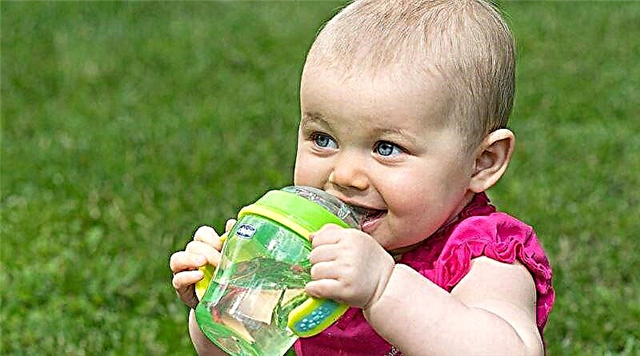Children have the art of manipulation to achieve their desired goal. If some go to conflict or obey, then the manipulators use an effective weapon of influence on parents in hidden ways. Many adults fall for such tricks. As a result, this behavior of the child is consolidated and gradually transformed into pathological character traits. There are insidious manipulators who “play” on feelings of pity. Such “victims” constantly complain about life and collect dividends - words of encouragement and help.

What is pity manipulation?
Toddlers understand from an early age that there is a strong connection between crying and parenting. How convenient it is to manipulate with pity! With age, the desire to evoke this feeling persists and can become an everyday way of communicating with others and a means of solving all problems.
The theme of compassion and pity is widely used in everyday life. You can easily achieve the desired goal and at the same time you do not have to spend energy and achieve anything. You can just cry or pretend to be pitying and the goal will be achieved. No wonder this popular phrase exists: "Five minutes of shame, and you're in chocolate"... Not only children, but also many adults achieve the desired results, "playing" on the feeling of self-pity.
Child manipulators do their best to show their parents how bad and lonely they are, how unhappy and weak they are. By evoking pity, they try to get the parents to melt and start using them. Let's remember the cat from the cartoon about Shrek. He deceived the soldiers, arousing their pity, and suddenly attacked them. By manipulating the parents, children do the same. They make it easy for their parents to do whatever they want.

Why is it so convenient for a child to be a victim and "press" on pity?
American psychologist Eric Berne called his book about the problems of human relationships "Games People Play"... In it, he describes a non-childish pity manipulation game that he calls "Look at what you've brought me to." He talks about the classic model of victims who behave appropriately and make themselves profitable in life.
The child quickly learns that being a victim is not so bad. Nobody blames the victim, because she is already bad. She is always right and in the spotlight with her problems. They feel sorry for her and sympathize with her. Victims have an effective way to manipulate other people, especially if they manage to make them feel guilty or embarrassed. They always expect easy help and can justify their failures.
Many parents become psychologically dependent on children who play victims. This is especially true of those who have excessively developed compassion for others, pity and conscientiousness.
Children, in the position of the victim, easily get high marks in school. It is enough to cry at the right moment, talk about difficult family problems or your own experiences. The main thing is for the teacher to be sympathetic and compassionate. Being in the position of a victim, you can calmly win arguments and discussions. A phrase like "If you were in my place ..." will immediately lead to the desired goal. And how easy it is for a child, pretending to be a victim, to beg from his parents any toy or entertainment!
How to deal with negative behaviors in children such as pity manipulation? And who do they imitate?
Parental behavior is the main reason for child manipulation
It is the parents who are the clear role models for the child. They show with their lives and relationships how to behave. The child clearly copies the model of relationships that is inherent in the family. Parents should remember that the main reason for their behavior based on the manipulation of pity is their own behavior.
Sometimes manipulation, as a model of behavior, passes from generation to generation, from grandmother to mother, from mother to daughter. From early childhood, the behavior of a victim-grandmother or a victim-mother is demonstrated before the eyes of a growing child. Such a grandmother often cries for her life and plays with pity herself. A mother, having adopted such a model of behavior, can reproach her father for a spoiled life, blame him for all her problems and regularly use such a phrase typical for victims as: "Why do I need all this?"... A girl who grows up in such a family, imitating her mother and grandmother, will also play a victim and such behavior can negatively affect her entire future life.
If you do not want your children to grow up as manipulators, then you need to analyze your own behavior. You should not blame others for your problems and try to shift the responsibility onto others. Psychologists do not recommend constantly feeling sorry for yourself in front of children. Only the correct behavior of the parents and their positive mood will give the child a clear example of building healthy relationships in the family without manipulating feelings.
Self-pity “grows” from childhood
In some families, self-pity is instilled in the child from childhood. If the baby is really born weak and sickly, then especially grandmothers are prone to overly patronizing and sympathy for him. They do not understand that their behavior can harm the child. For the rest of his life he can remain "pale and frail," weak-willed and helpless.
Psychologists believe that pity is blind love that only harms a person. In the educational process, it is better not to feel sorry for the child, but to teach him how to show mercy. The words "pity" and "mercy" are not synonymous. Pity is an impulse, a momentary feeling, and mercy is a state of mind. Showing pity means compassion and doing nothing, while showing mercy means doing something to help those in need.
Hypersensitive children need special attention
What if the child is just overly sensitive? There are children who especially perceive the world around them. They are acutely aware of injustice, vulnerable and impressionable. These are characteristic properties of their personality, not methods of manipulation. Such children require increased attention, love, calmness and affection.
The family and relationships in it are the standard for the behavior of the child. Real parents will do everything to become a worthy example for their children. Psychologists advise remembering: "What goes around comes around".



